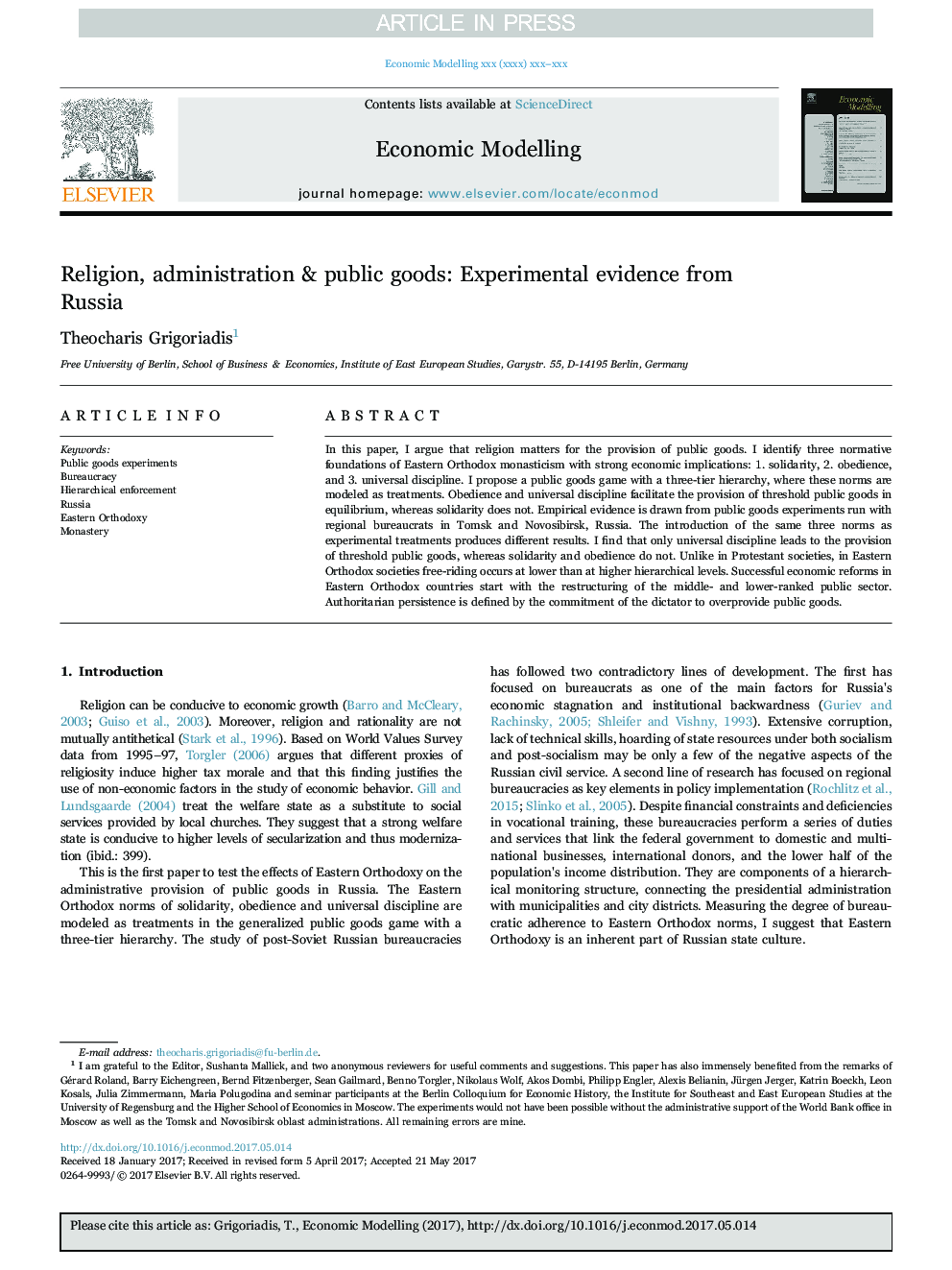| Article ID | Journal | Published Year | Pages | File Type |
|---|---|---|---|---|
| 5053047 | Economic Modelling | 2017 | 19 Pages |
Abstract
In this paper, I argue that religion matters for the provision of public goods. I identify three normative foundations of Eastern Orthodox monasticism with strong economic implications: 1. solidarity, 2. obedience, and 3. universal discipline. I propose a public goods game with a three-tier hierarchy, where these norms are modeled as treatments. Obedience and universal discipline facilitate the provision of threshold public goods in equilibrium, whereas solidarity does not. Empirical evidence is drawn from public goods experiments run with regional bureaucrats in Tomsk and Novosibirsk, Russia. The introduction of the same three norms as experimental treatments produces different results. I find that only universal discipline leads to the provision of threshold public goods, whereas solidarity and obedience do not. Unlike in Protestant societies, in Eastern Orthodox societies free-riding occurs at lower than at higher hierarchical levels. Successful economic reforms in Eastern Orthodox countries start with the restructuring of the middle- and lower-ranked public sector. Authoritarian persistence is defined by the commitment of the dictator to overprovide public goods.
Related Topics
Social Sciences and Humanities
Economics, Econometrics and Finance
Economics and Econometrics
Authors
Theocharis Grigoriadis,
